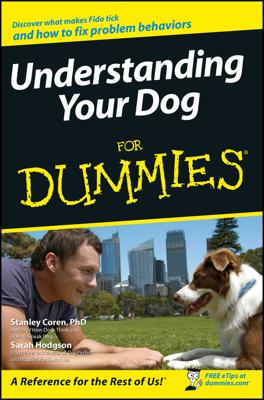You can cement your puppy’s understanding of housetraining by following some basic tips about accidents in the house. If you outline your ritual and highlight your plan to anyone involved in the process, your puppy will be housetrained in no time!
Here are some quick tips for avoiding and handling puppy accidents:
Limit her to a small confinement area. If your puppy is eliminating in little-used corners of your house, she may have too much freedom. Puppies are den animals. Most young or untrained dogs won’t soil the area right around them, but if they can race upstairs or into an adjacent room outside their “den,” they’re more than happy to relieve themselves there.
So keep your puppy confined. Crate your puppy at night and when you’re out, or station her. After she learns the rules, you can grant her more freedom, but not now.
Clean up accidents privately. If your puppy eliminates in an unacceptable place, don’t let her see you clean up her mess. Doing so signals a nurturing acceptance that encourages a repeat performance. Calmly place your puppy in another room or with a family member as you clean it up.
Neutralize the odor. Your puppy has a very sensitive sniffer. She’ll automatically return to areas where her smell is concentrated. Use a pet store formula or a 50-50 mixture of water and vinegar to remove the scent.
Know when corrections count. If you catch your puppy in the process of eliminating in the house, startle her just a little (shouting and running at your puppy is way too scary). Clap your hands as you say “Ep, ep, ep!” After you’ve interrupted your pup, relax your posture and calmly direct her to the elimination area as if nothing happened. When she’s done, praise her for finishing.
Know when corrections don’t count. As much as you want to think your pup’s human, she isn’t, and your frustration and anger toward your puppy just make you look foolish. Sure, you can frighten a puppy into looking guilty, but scaring her isn’t going to teach her anything — except to be leery of you. If you catch your pup soiling someplace other than her designated area, you can interrupt the process, but lay off all other corrections.
Maintain a stable diet. Avoid changing dog food brands unless your veterinarian directs you to do so. Your puppy doesn’t digest food the way you do: Her intestine is small and unable to process and absorb a varied diet.
If your puppy is pooping in the house, lay off food treats. If you give food sporadically throughout the day, her elimination habits will be random.
Watch the water intake. Puppies, especially young ones, drink water excessively if they’re bored or nervous. If your pup is having housetraining problems, monitor her water intake by giving her access to her water bowl only during meal times and as you take her to her area.
Be careful not to dehydrate your pup. If she’s panting or very lethargic, give her a bowl of water. Remove water after 7:30 p.m. If she needs a drink after that time, give her ice cubes to play with or a small amount of water (1/4–1/2 cup) to quench her thirst.

